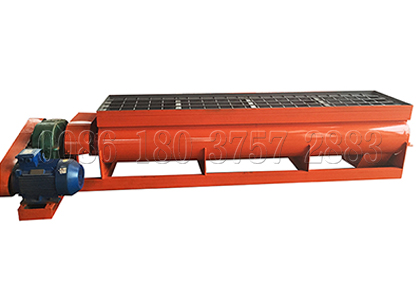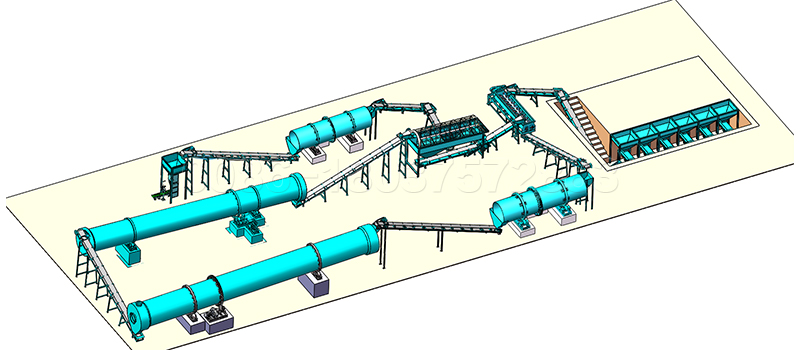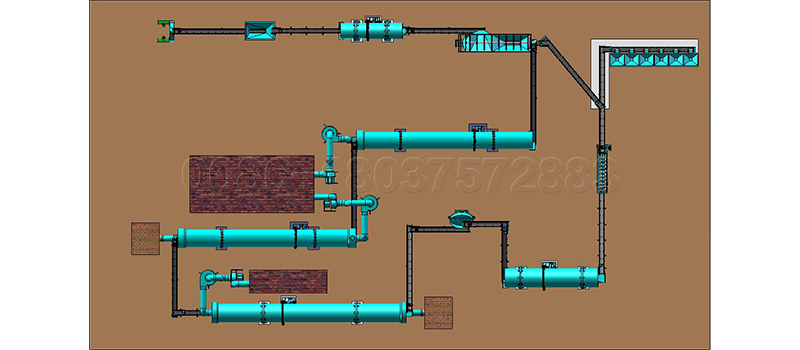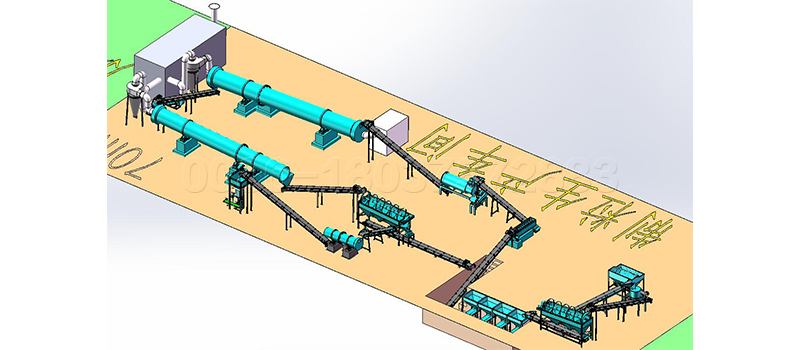Organic fertilizer has more nutrients and high content of organic matter. It can also loosen soil, improve soil fertility and improve soil structure. Organic fertilizer is favored by producers and producers to improve crop yield and quality. Since organic fertilizer is so good, do you know how to do it?
The main production process of organic fertilizer production line is to convert raw materials into semi-finished products. In the actual production process, the flat stack composting technology and tank aerobic fermentation process are mainly used.
In addition, the relevant experiments of organic fertilizer equipment can also be produced by small tank fermentation and closed box fermentation.
Process flow of organic fertilizer production line:
Raw material selection > drying and sterilization > fermentation > grinding > stirring > granulation > drying > cooling > coating > screening > metering and sealing > finished product warehousing.
Organic fertilizer production line
1. Tanker:
The can turnover machine is mainly used to help fermentation and decomposition proceed quickly. At the same time, oxygen can enter the reactor to avoid the smell produced by anaerobic reaction.
2. Forklift batching:
The blanking shall be uniform and continuous to avoid hindering the normal operation of the next equipment due to excessive materials.
3. High humidity material crusher:
During the composting process, the agglomerated materials are crushed evenly to reduce the diameter of the materials.
4. Drum screen:
The impurities and bulk materials not crushed are screened out to further improve the marketability.
5. Horizontal mixer:
If it is necessary to improve nutrient elements or produce standard organic fertilizer manufacturers, N, P, K, etc. need to be added.
6. Nitrogen, phosphorus and potassium fertilizer granulator:
Including various fertilizer granulation equipment, flat mold granulator, organic fertilizer granulator, disc granulator and drum granulator.
7. Drum drying cooler
8. Automatic packing scale:
After packaging, it is easy to store. At the same time, it will not cause dust pollution and waste during transportation.





